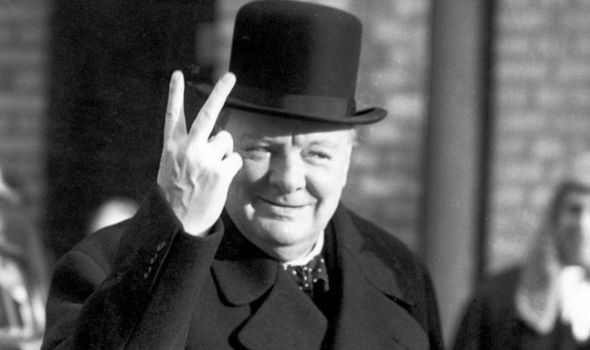Winston Churchill led Britain through World War II, but he also fought a much longer war on another front.
While the Battle of Britain raged over the English skies, Churchill took aim at his staff’s preference for long-windedness over instant clarity.
And the salvos he fired still hit the mark today.
In the age of screen reading the scan dominates our reading habits.
And scans love:
- Brevity
- Bullet points
- Short sentences
- Even shorter paragraphs
- Snackable headlines
- Emboldened key points
Churchill’s war on verbosity – undertaken through pot-shots at his staff’s reports – has never been timelier than today, seventy years on.
His highly-sharpened editor’s pencil called for the sort of cuts we’d all still like to see – and it’s rare indeed for government cuts to receive such a ringing endorsement.
Here’s what he said:
‘To do our work, we all have to read a mass of papers.
Nearly all of them are far too long.
This wastes time, while energy has to be spent in looking for the essential points.
The discipline of setting out the real points concisely will prove an aid to clearer thinking.’
Too true, Winnie, too true.
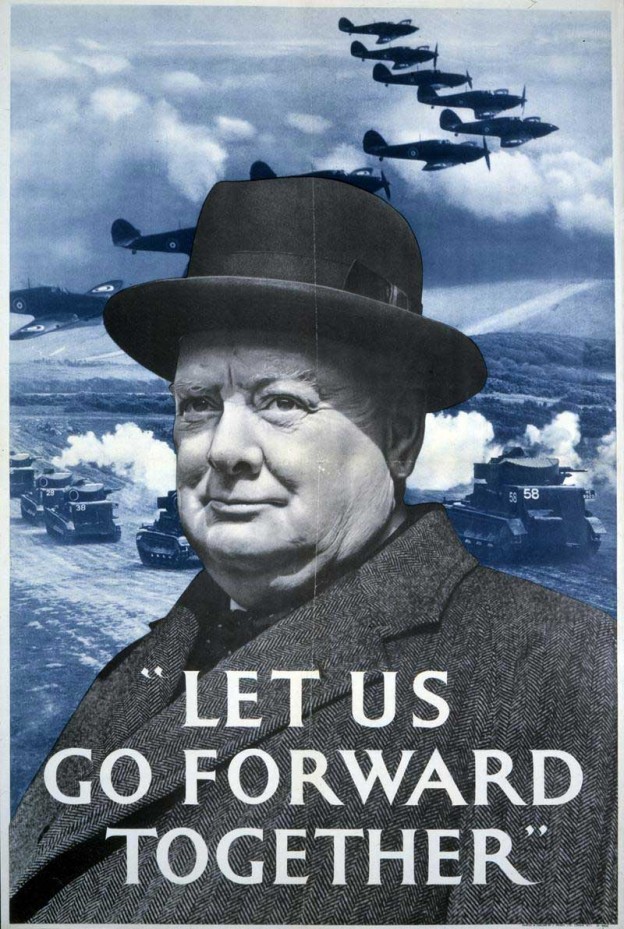
Here is the memo in full.
BREVITY
(Memorandum by the Prime Minister)
To do our work, we all have to read a mass of papers. Nearly all of them are far too long. This wastes time, while energy has to be spent in looking for the essential points.
I ask my colleagues and their staffs to see to it that their reports are kept shorter.
- The aim should be Reports which set out their main points in a series of short, crisp paragraphs.
- If a Report relies on detailed analysis … these should be set out in an Appendix.
- Often the occasion is best met … by submitting an Aide-memoire, consisting of headings which can be expanded orally if needed.
- Let us have an end of phrases such as these:“It is also of importance to bear in mind the following considerations….” or “Consideration should be given to the possibility of carrying into effect….” Most of these woolly phrases are mere padding which can be left out altogether or replaced by a single word. Let us not shrink from using the short, expressive phrase, even if it is conversational.
Reports drawn up on the lines I propose may at first seem rough compared to the flat surface of officialese jargon.
But the saving of time will be great, while the discipline of setting out the real points concisely will prove an aid to clearer thinking.
W.S.C.
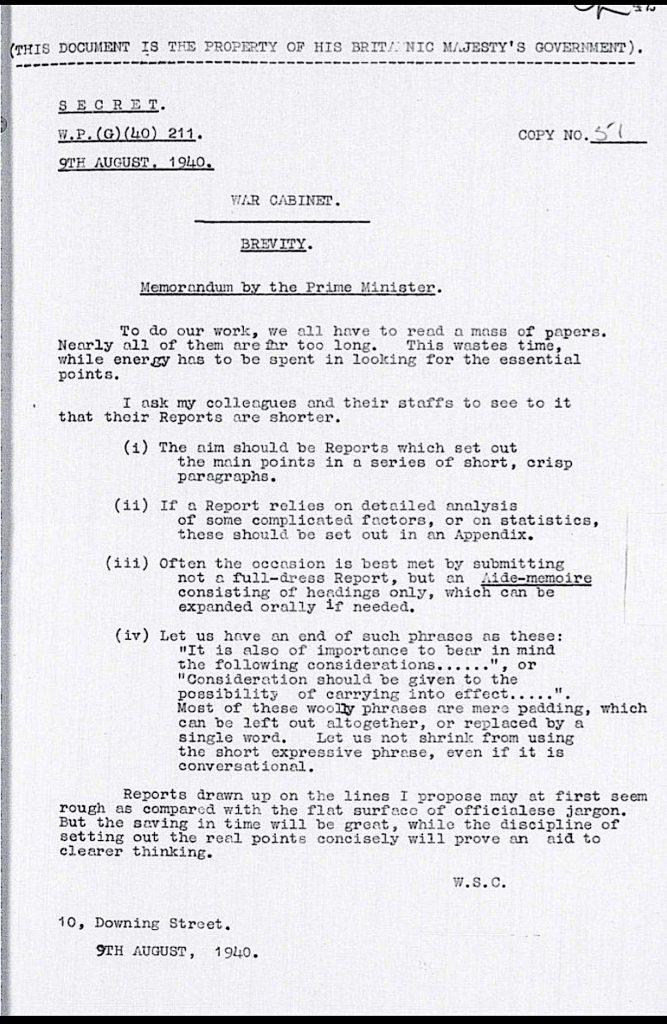
Unfortunately, it was a war he lost: he had to reissue the same memorandum in 1950!
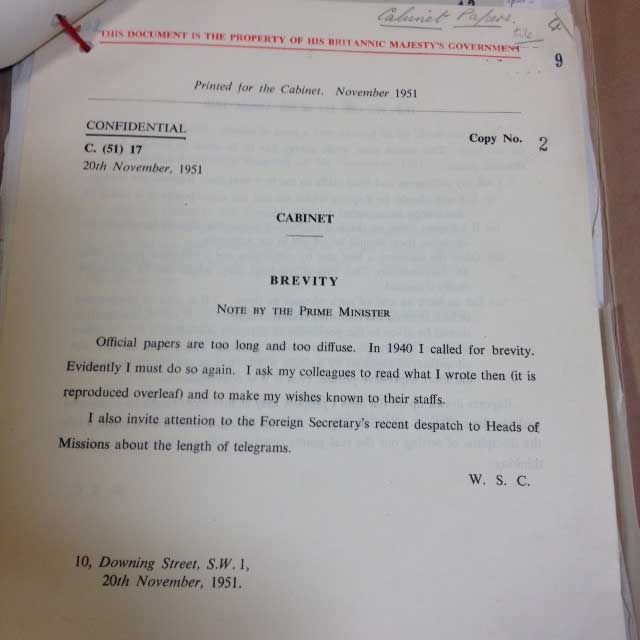
And in 1951 he started an assault on the minutes of government.
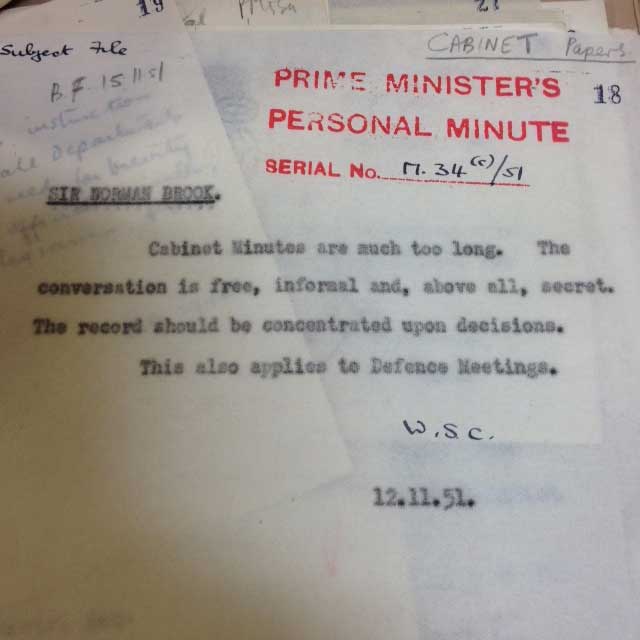
I’m sure there are more gems from our own official records, but, from more recent times, here’s Donald Trump from across the pond echoing Churchill’s plea:
“I like bullets or I like as little as possible. I don’t need, you know, 200-page reports on something that can be handled on a page.”
Donald Trump
And from back in the day, you just have to love this response to Churchill’s missive.
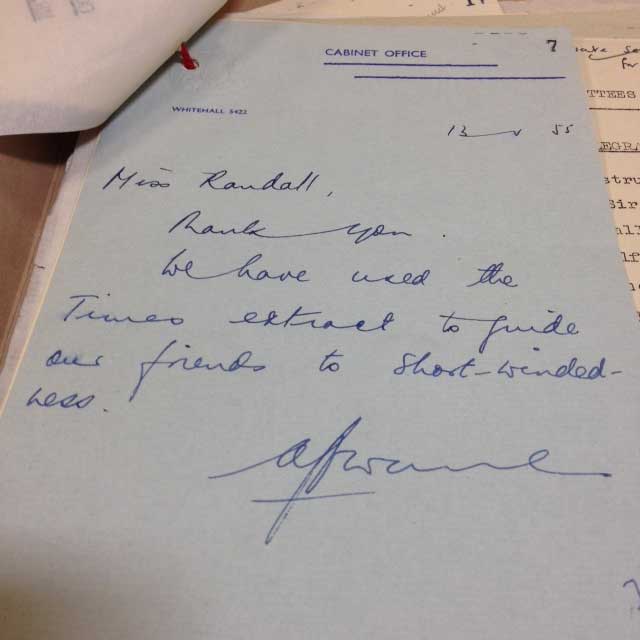
“We have used this to guide our friends to short-windedness”.
Short-windedness – now there’s something to aim for!
